June 11
Richard Strauss
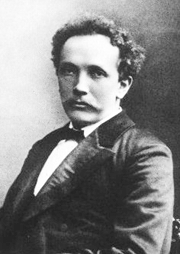
On this date in 1864, composer Richard Strauss was born in Germany. Strauss began piano lessons at age 3 and composition by 7. He studied music and philosophy for two terms at Munich University and launched into a career as a conductor. His teenage composition was influenced by the work of Robert Schumann. His piano quartet of 1884 was completed following a consultation with Johannes Brahms, but the adult Strauss was influenced by Franz Liszt and Richard Wagner.
He excelled in the tone poem (including “Also Sprach Zarathustra,” setting to music Nietszche‘s and his own views), and opera. His opera “Salome” (1905), based on the play by Oscar Wilde, was a sensation not just because of the “blasphemous” subject matter but because it was a musical stretch. Another Strauss opera was “Electra” (1909). His compositions include the tone poem “Till Eulenspiegel’s Merry Pranks,” later performed as a ballet with choreography by Nijinsky. He wrote his first songs as a wedding present for his wife, Pauline von Ahna, whom he married in 1894.
Strauss composed the Olympic hymn for the 1936 games in Berlin. He was briefly appointed head of state music (without his consultation) by the Third Reich. He was barred from working with his librettist, Stefan Zweig, who was Jewish, and it is believed he maintained silence about the Nazis in part because his grandchildren were part Jewish. He received warnings about his private letters, which were screened by authorities. Strauss spent much of the war in Vienna, moving to Switzerland at the war’s conclusion. He conducted for the final time when he turned 85. D. 1949.
“When during my stay in Egypt I became familiar with the works of Nietzsche, whose polemic against Christianity was particularly to my liking, the antipathy which I had always felt against a religion which relieves the faithful of responsibility for their actions (by means of confession) was confirmed and strengthened.”
— Strauss, quoted in "Recollections and Reflections" (ed. Willy Schuh, 1949)
Joseph Lewis
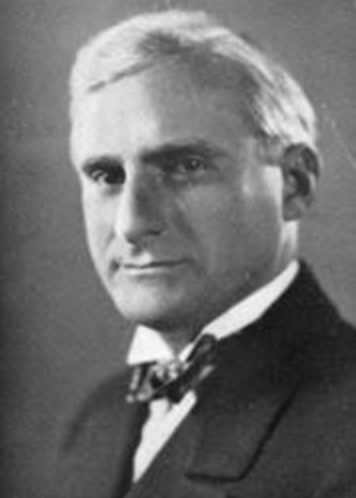
On this date in 1889, Joseph Lewis was born in Montgomery, Ala., where he left school at age 9 to find employment. Self-educated, he read Robert G. Ingersoll and Thomas Paine, his lifelong “idol.” Moving to New York City in 1920, Lewis became president of Freethinkers of America. He started his own publishing house, the Freethought Press Association.
His many books include The Tyranny of God (1921), Lincoln, the Freethinker (1925), Jefferson, the Freethinker (1925), The Bible Unmasked (1926), Franklin, the Freethinker (1926), Burbank, the Infidel (1929), Atheism, a collection of his public addresses (1930), Voltaire, the Incomparable Infidel (1929), The Bible and the Public Schools (1931), Should Children Receive Religious Instruction? (1933), The Ten Commandments (1946), Thomas Paine, Author of the Declaration of Independence (1947) and In the Name of Humanity (1949), which condemned circumcision. His book An Atheist Manifesto, 1954, was his major treatise on freethought.
Lewis began publishing a bulletin, Freethinkers of America, in 1937, which was renamed Freethinker in the 1940s, and finally Age of Reason in the 1950s. Lewis persuaded the government of France to erect a sculpture of Paine by Gutzon Borglum (the Mount Rushmore sculptor) in Paris. Lewis also dedicated statues to Paine in Morristown, NJ., in 1950 and in front of Paine’s place of birth in Thetford, England, in 1964.
Lewis took numerous court cases to protect the separation of church and state, seeking punitive damages from New York’s Trinity Church when it erected a plaque with a bogus prayer by George Washington (Lewis lost). He protested the addition of “under God” in the Pledge of Allegiance in 1954 and the issuance of Christmas stamps in the 1960s. Lewis broadcast freethought material over the radio when he lived in Miami, Florida. D. 1968.
“Atheism rises above creeds and puts Humanity upon one plane.
There can be no ‘chosen people’ in the Atheist philosophy.
There are no bended knees in Atheism;
No supplications, no prayers;
No sacrificial redemptions;
No ‘divine’ revelations;
No washing in the blood of the lamb;
No crusades, no massacres, no holy wars;
No heaven, no hell, no purgatory;
No silly rewards and no vindictive punishments;
No christs, and no saviors;
No devils, no ghosts and no gods.”— Lewis, "Atheist Rises Above Creeds," address on atheism at Community Church, New York City (April 20, 1930)
Hugh Laurie
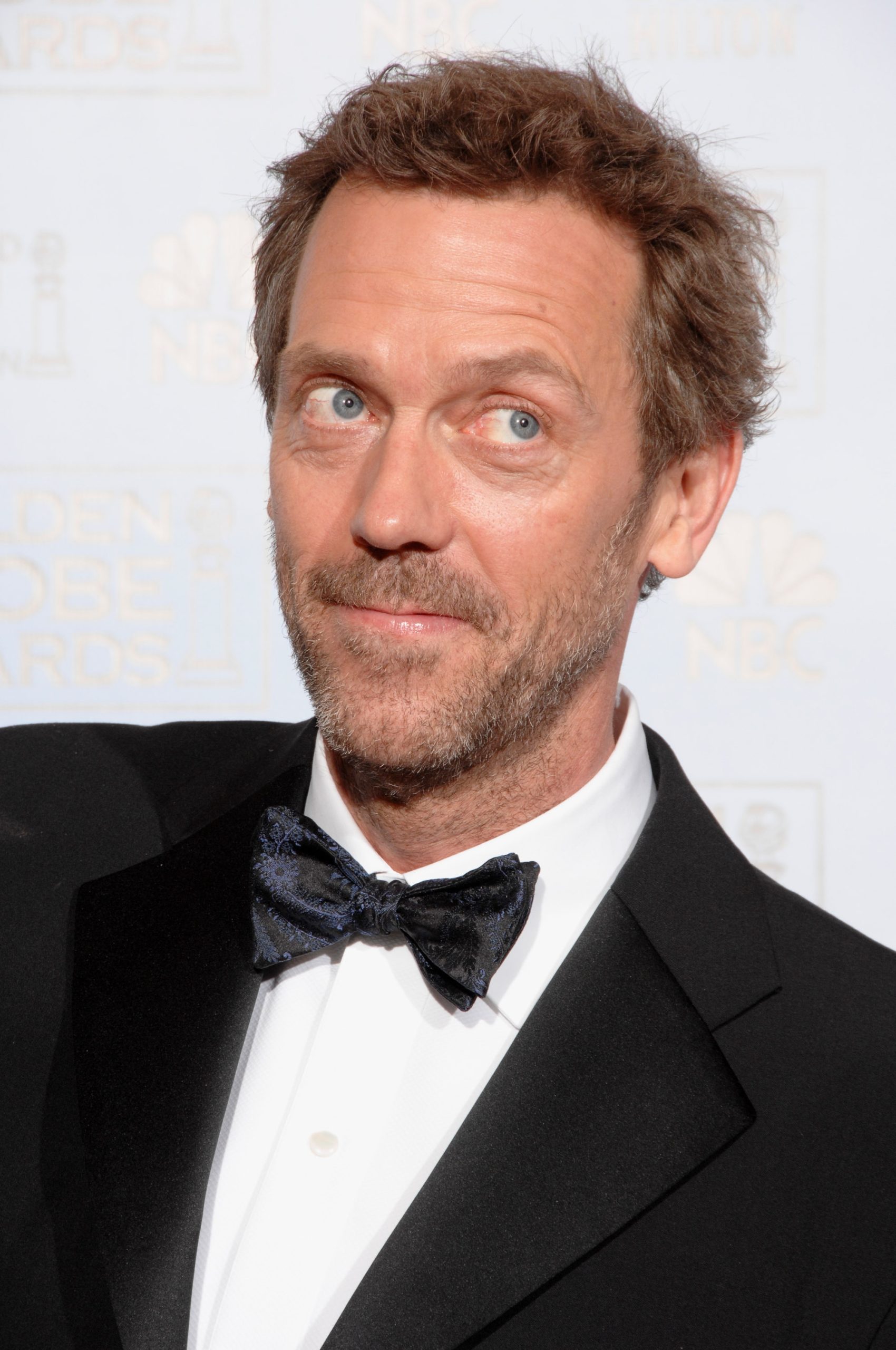
On this date in 1959, James Hugh Calum Laurie was born in Oxford, England. Laurie attended Eton College, where he competed in rowing, and later attended Cambridge University, where he studied anthropology. At Cambridge, Laurie joined Footlights, the student comedy society, where he met future collaborators Emma Thompson and Stephen Fry. He graduated in 1981 from Selwyn College with a degree in anthropology and archaeology.
After graduation he worked on a variety of comic television projects and had a recurring role in the third and fourth seasons of the popular sitcom “Blackadder” (1983-89). He and Fry wrote and starred in the sketch comedy series “A Bit of Fry and Laurie” (1987-95). Laurie also starred opposite Fry in the series “Jeeves and Wooster” (1990-93), adapted from P.G. Wodehouse‘s novels. (Laurie played the bumbling Bertie Wooster and Fry played the butler, Jeeves.)
Notable screen roles have included “Sense and Sensibility,” (1995) with Thompson and Imogen Stubbs, a frequent co-star. Laurie, whose father was a physician, is perhaps best known for his starring role on the U.S. drama series “House, M.D.” (2004-12). On “House” he played an infectious disease specialist and brilliant diagnostician. In a significant departure from the upper-class British characters he has played throughout most of his career, House has an American accent.
Laurie was raised Scottish Presbyterian and now identifies as an atheist. He once told The Times of London, “I admire the music, buildings and ethics of religion, but I come unstuck on the God thing.” (March 29, 2008) He and his wife, theater administrator Jo Green, have been married since 1989. They have three children. In 2011 he released an album of blues music recorded in New Orleans, entitled “Let Them Talk.” Laurie did vocals and piano on the album.
James Lipton: Do you share House’s skepticism?
Hugh Laurie: [laughing] I do. Big chunks of it, yes. I’m not a religious man. Again, I think this is connected to my father. My father was religious oddly enough, but I nonetheless I suppose was impressed by [and] enamored of his devotion to medical science. I find I am a fan of science. I believe in science.”— Laurie interview, “Inside the Actors Studio,” Bravo TV (July 31, 2006)
Robert Munsch
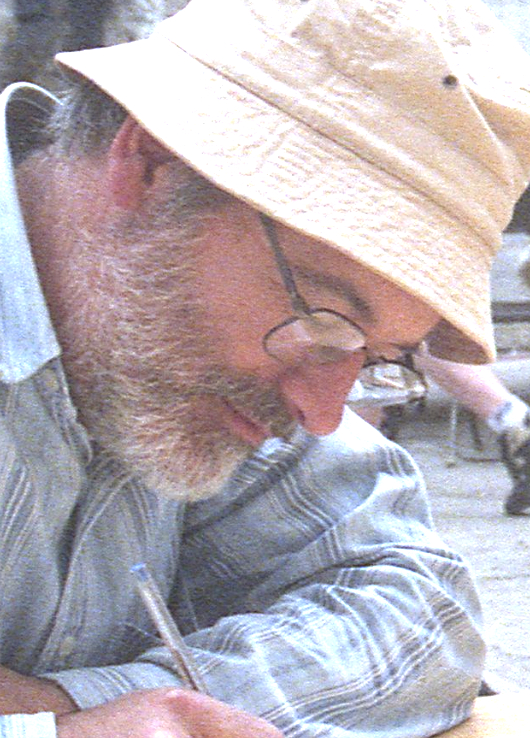
On this date in 1945, children’s author Robert Norman Munsch was born in Pittsburgh, Pa., the fourth of nine children. Munsch earned a bachelor’s in history from Fordham University (1969) and a master’s in anthropology from Boston University (1971). For seven years, he studied in Boston to become a Catholic priest but stopped, unable to “believe all the things he was expected to espouse.” (See quote for citation.) Instead he found himself drawn to work in orphanages and day care centers.
In the 1970s he and his wife Ann Beeler, whom he met working in an orphanage, moved to Canada and found work at the University of Guelph in Ontario. One of his first children’s stories, Mud Puddle, was published in 1979. His U.S. popularity grew with his book Love You Forever (1986). More than 55 of his books have been published. Some of his stories were adapted for a cartoon series, “Bunch of Munsch” (1991-92). He regularly made surprise appearances at day cares, libraries and schools to tell stories to children. Munsch became a Member of the Order of Canada in 1999, in recognition of “a lifetime of outstanding achievement, dedication to the community and service to the nation.”
One of his books, Giant; or Waiting for the Thursday Boat (1989), was banned in some places as offensive to religion, e.g., a character threatens to “pound God into applesauce.” Munsch is a Unitarian who attended the Unitarian Fellowship in Guelph “until the routine petered out when the kids got restless.” (Citation below.) Munsch and his wife have three adopted children.
Munsch autograph session in 1997 in Guelph, Ontario; Markbellis photo under CC 4.0.
“My brief answer is that I am an atheist. … I’m not saying there isn’t a God, but there isn’t a God who cares about people. And who wants a God who doesn’t give a shit?”
— Munsch comment to Anglican priest and biblical scholar Tom Harpur, quoted in a sermon by Brian Kiely, Unitarian Church of Edmonton, "The Theology of Robert Munsch” (May 9, 2004)
Anne Royall
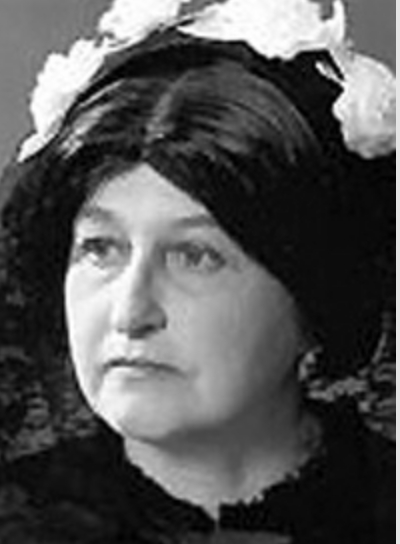
On this date in 1769, Anne Royall (née Newport) was born in Baltimore. A wealthy Revolutionary War soldier, Major William Royall, who had hired her mother as a servant, married Anne at age 28 when he was more than 20 years older in 1797. She embraced freethought and the Age of Reason, repudiating dogma and hell. By some accounts, she was the first professional woman journalist in the U.S.
Left a widow when her husband died in 1813, she spent the next decade in Alabama. Royall’s relatives contested the will and broke it in 1823, forcing her to earn her income by pen. She set off on a series of nomadic adventures, writing a number of travel books, including her series of “Black Books.” According to biographer Jeff Biggers, the popular volumes were “informative but sardonic portraits of the elite and their denizens from Mississippi to Maine.”
Royall reviled missionaries and piety, fought evangelicals in Congress and destroyed the tracts of the Sunday School Union wherever she found them, including in the Library of Congress, on steamboats and in hotel rooms. She drove missionaries from the halls of Congress, wielding an old green umbrella. In 1827, when Rev. Ezra Stiles Ely announced plans for “a Christian Party” to elect only Christians, she called it treasonous.
She tried to stop Sabbatarians from halting Sunday mail distribution, championed public schools free from religious bias and feuded with a neighboring evangelical church, which harassed her and got her arrested as a public nuisance and “common scold.” She was convicted and was fined $10, an amount paid by two journalists in Washington, D.C.
At 62 she launched a weekly newspaper out of her home (1831-36), followed by The Huntress (1836-54), to educate people about government. She knew and interviewed every president from John Adams to Franklin Pierce. She was cheated out of a war pension, which it had taken John Quincy Adams 25 years to win for her, dying almost penniless at 85. D. 1854.
“An enemy is an enemy, whether he be wrapped in a cloak of cloth, or a cloak of religion.”
— "The Black Book, or, A Continuation of Travels in the United States" (Vol. 3, 1829)
Ingrid Newkirk
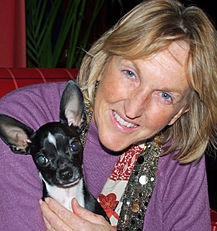
On this date in 1949, animal rights advocate Ingrid E. Newkirk was born in Surrey, England. The family moved to India when she was 7 after her father, a navigational engineer, took a job there. Her mother volunteered at Mother Teresa facilities and Newkirk attended a convent boarding school, where she was the only British student. “I was hit constantly by nuns, starved by nuns. The whole God thing was shoved right down my throat,” she told The New Yorker in April 2003.
The family moved to Florida when she was 18. She met her husband there (they divorced in 1980). Under Newkirk’s leadership in the 1970s as the District of Columbia’s first female poundmaster, the first spay/neuter clinic was started in Washington, along with an animal adoption program and public funding of some veterinary services.
Newkirk and Alex Pacheco co-founded People for the Ethical Treatment of Animals in 1980. National prominence came after Pacheco photographed 17 macaque monkeys being experimented on inside the Institute of Behavioral Research in Silver Spring, Md. That led to the first police raid in the U.S. on an animal research lab and to a 1985 amendment to the Animal Welfare Act.
As the longtime president of PETA, she saw it grow into a Norfolk, Va.-based nonprofit with 300 employees and international affiliates. She has written numerous articles and books, including Save the Animals! 101 Easy Things You Can Do, The Compassionate Cook, One Can Make a Difference and The PETA Practical Guide to Animal Rights.
PHOTO: Newkirk in 1970 with Little Man, photographer David Shankbone’s Chihuahua, CC 3.0.
“I’m an atheist. I don’t believe in God. I believe that the horrors in this world could not ever have been created by a loving God. I believe in kindness, I believe in personal responsibility, and I believe in being decent to people.”
— Newkirk, HBO documentary (Nov. 19, 2007)
Gene Wilder
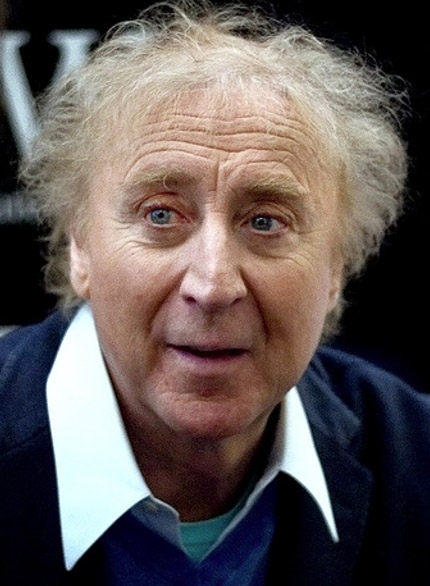
On this date in 1933, actor Gene Wilder (né Jerome Silberman) was born in Milwaukee to Jeanne (Baer) and William Silberman, a Russian-Jewish immigrant. As an adult, Wilder would call himself a “Jewish-Buddhist atheist.” His mother was stricken with rheumatic fever when Wilder was 8 and remained in ill health, which was said to give impetus to his comedic talents as he tried to cheer her up on doctor’s orders. He was involved in local and high school theater and studied communication and theater arts at the University of Iowa and the Stanislavski method in New York City while serving in the U.S. Army. He married Mary Mercier in 1960, the first of four wives.
After several roles on the stage (his stage name came from Gene Gant, the hero of Thomas Wolfe’s Look Homeward Angel, and playwright Thornton Wilder, whose “Our Town” was his favorite play), he made his movie debut in 1967 in “Bonnie and Clyde,” which led to a stellar career in the film industry and iconic, usually eccentric and neurotic roles, often in collaboration with Mel Brooks, in “The Producers,” “Young Frankenstein,” “Blazing Saddles” and “Willy Wonka & the Chocolate Factory.” He later co-starred with Richard Pryor in four movies, the last of which, 1991’s “Another You,” was his final appearance in a feature film.
Wilder also produced and directed movies and wrote screenplays and several books. With oncologist Steven Piver, he wrote Gilda’s Disease (1998), which chronicled his life with his third wife and co-star Gilda Radner, who died in 1989 of ovarian cancer. After marrying speech pathologist Karen Boyer in 1991, he wrote a memoir, Kiss Me Like a Stranger: My Search for Love and Art, a collection of stories titled What Is This Thing Called Love? and three novels. He died of complications from Alzheimer’s on Aug. 29, 2016.
“I’m going to tell you what my religion is. Do unto others as you would have them do unto you. Period. Terminato. Finito. I have no other religion. I feel very Jewish and I feel very grateful to be Jewish. But I don’t believe in God or anything to do with the Jewish religion.”
— "Stars of David: Prominent Jews Talk About Being Jewish," Abigail Pogrebin (Oct. 25, 2005)
